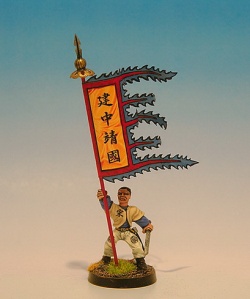Sikkhapada
Sikkhāpada: 'steps of training', moral rules.
The 5 moral rules, also called pañca-sīla which are binding on all Buddhist laymen, are:
1 abstaining from killing any living being,
2 from stealing,
3 from unlawful sexual intercourse,
4 from lying,
5 from the use of intoxicants.
see: surāmeraya Precepts.
The 10 rules dasa-sīla are binding on all novices and Bhikkhus, namely:
1 abstaining from killing,
2 from stealing,
3 from unchastity,
4 from lying,
5 from the use of intoxicants,
6 from eating after midday,
7 from dancing, singing, music and shows,
8 from garlands, scents, cosmetics and adornments, etc.,
9 from luxurious beds,
10 from accepting gold and silver.
In the 8 rules attha-sīla which on full and new moon days, and on the first and last quarter of the moon, are observed by many lay-followers upāsaka, the 7th and 8th of the above 10 rules are fused into one as the 7th rule, while the 9th becomes the 8th.
1. Sikkhapada Sutta. The unworthy man is he who takes life, steals, etc. The worthy man, he who abstains from these things. A.ii.217.
2. Sikkhapada Sutta. The four kinds of deeds: dark with dark result, bright with bright result, neither dark nor bright, both dark and bright. A.ii.233.

